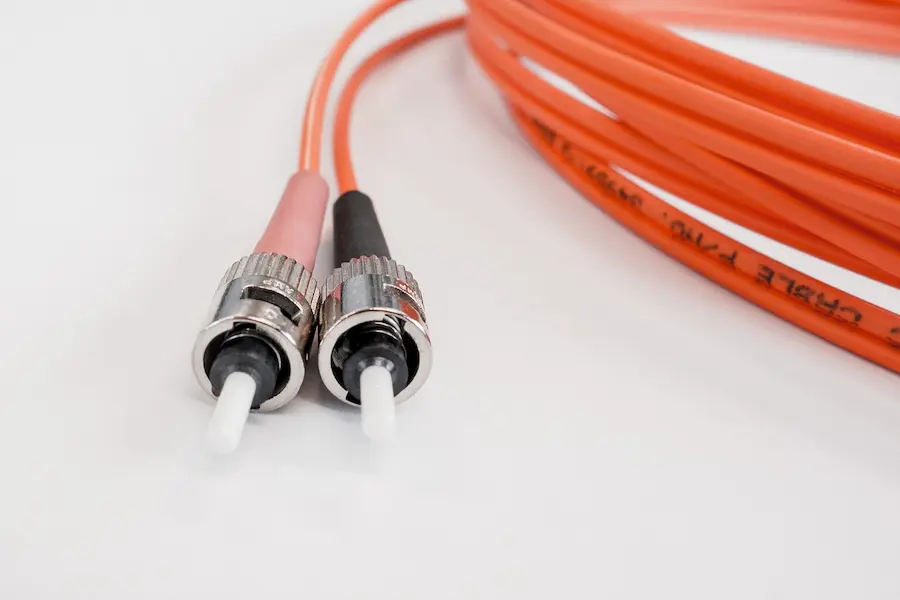Fiber optics is a technology that transmits data through light. This is accomplished using glass fibers about the size of human hair bundled together. These cables don’t use metallic components, making them resistant to electromagnetic interference. Additionally, they aren’t impacted by things like bad weather or moisture.
Table of Contents
Reliability
The reliability of fiber optic technology is a significant selling point for businesses and organizations. It is less susceptible to interference, which can cause delays in data transmission and productivity. It also resists corrosive elements better than copper wire cables and is much lighter. This means installing in tight spaces or existing networks is more accessible. Optical fibers transmit light, allowing them to travel farther than copper cables. This is especially important for long-distance network connections and high-speed internet services. Unlike copper, optical fibers do not radiate electromagnetic emissions, making them impossible to listen to. This, combined with a more straightforward hardware structure that only requires one location for all electronics and hardware, provides a highly secure network. It also makes it easy to identify breaches as soon as they happen. In addition, it is much more resistant to a phenomenon known as “fiber fuse” that can occur when too much light meets an imperfection in the cable.
Security
Unlike copper wire, fiber optics transmit signals in the form of light. Electrical signals are converted into light by a transmitter unit, which travels along the cable until it reaches its destination, where it is converted back into electrical data by a receiver unit. This light transmission system offers unparalleled security. Since optical fiber doesn’t radiate electromagnetic emissions, listening in on your communication without detection is more complicated. Additionally, because the fiber optic cabling is made of all-dielectric glass, it resists electromagnetic interference from electricity sources like power lines and railway tracks, corrosion, and environmental factors like moisture and temperature changes. In addition, because you can install hardware in a single central location, it’s easy to regulate and monitor your fiber network. This starkly contrasts the more complex copper systems that require multiple distribution points throughout a facility. This lower latency can lead to better voice quality for VoIP services, the ability to upload and download massive files at once, and higher-quality video content.
Speed
When it comes to bandwidth potential, no technology beats fiber. Fiber cables can transmit a much higher level of uncompressed data than copper wires of the same diameter, meaning it can take fewer cables to service a larger area and maintain high speeds over longer distances. As a result, your Internet connectivity will be more stable and consistent, which can be essential for maintaining productivity. In addition, lower latency means you can download and upload files faster, which can help you maintain business agility. Fiber is also immune to electromagnetic interference, which can disrupt and degrade copper connections. This is because it does not carry electrical signals but relatively light transmissions, so EMI can’t interfere with it.
Additionally, it is easier to tap into with physical access because it doesn’t emit light. This makes it an excellent choice for security-conscious businesses. It’s also safe in spark-prone environments like chemical factories and oil refineries.
Scalability
Unlike copper, which transmits electrical pulses along metal strands, fiber optics carry data by sending light signals along flexible glass threads. This makes them the better choice for a business network requiring large bandwidth. As your company grows, you may need to upgrade your network. With fiber, this can be done without replacing the existing cable infrastructure. This is because optical fibers have a greater capacity to handle data and are much smaller than the equivalent copper cables.
Moreover, optical fibers are immune to electromagnetic interference. This allows them to run in electrically noisy environments. They also have negligible transmission loss. This will enable you to use them in various applications, including remote sensing. Lastly, fiber does not emit signals, making it difficult to listen to your communications. This enhances your security and makes it easier to identify breaches as they occur. The reliability of your connectivity is critical to a productive work environment. Slow internet speeds, high latency, or capped connections can be costly for your business.
Visit the rest of the site Updated Ideas for more useful and informative articles. If you want to write for us, just hit the contact button in the top right corner.
Thank you!

